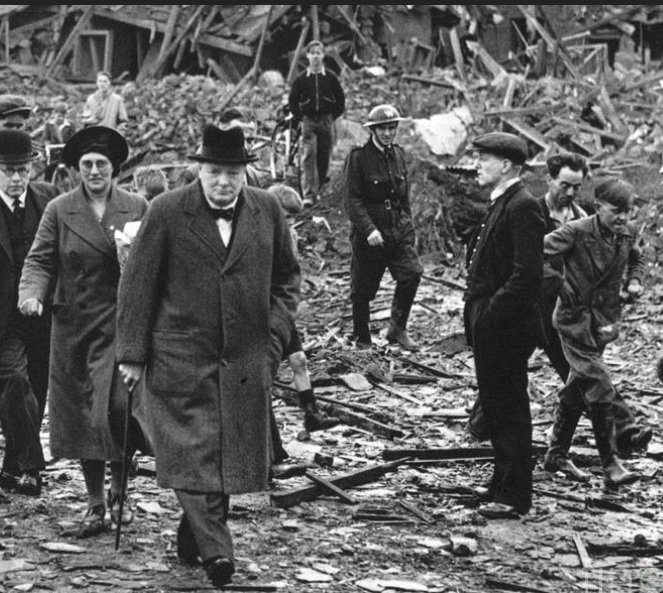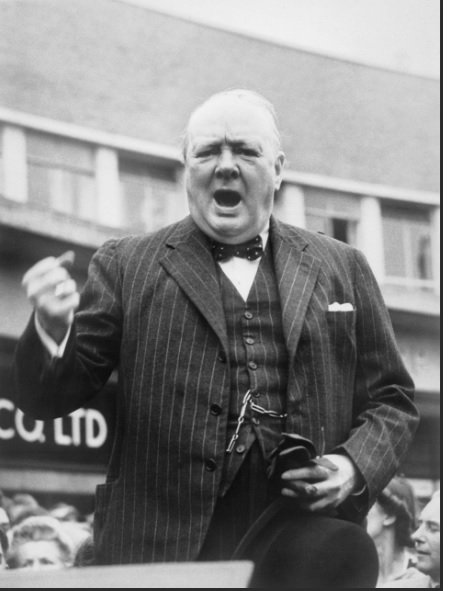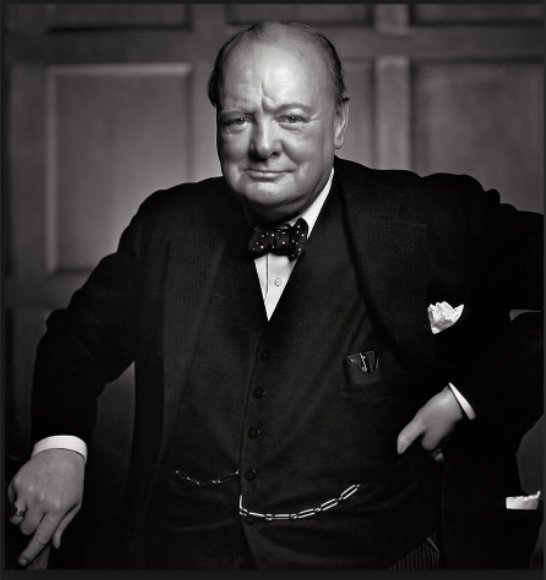Peace in Our Time - Part 3
In 1938, Germany demanded Czechoslovakia transfer control of the Sudetenland region to Germany. The 1938 population of Czechoslovakia was about 20% German. Most were located near the Sudeten mountains in western Czechoslovakia near the German border, hence the name Sudetenland. Hitler claimed that three million Germans living in the Sudetenland of Czechoslovakia were an oppressed minority.
Britain and France acquiesced to this German demand by agreeing to the Munich Accords with Germany in a policy known as appeasement.
In part 1 of this series, we reviewed Hitler's 1938 speeches justifying acquiring the Sudetenland. Hitler's justification for taking the Sudetenland from Czechoslovakia resembles Putin's for invading Ukraine.
In part 2, we looked at British Prime Minister Neville Chamberlain's defense of appeasement.
In this entry, we'll look at the opposition to appeasement.
British House of Parliament, location of Munich Accords Debate
Shortly after the Munich Accords, F. L. Lucas, professor of literature at the University of Cambridge, published a letter in the Manchester Guardian newspaper entitled "The Funeral of British Honour." Lucas was a wounded veteran of World War I and worked as a codebreaker in World War II. In this letter, he stated (bold added):
"The flowers piled before 10 Downing Street are very fitting for the funeral of British honour and, it may be, of the British Empire. I appreciate the Prime Minister's love of peace. I know the horrors of war – a great deal better than he can. But when he returns from saving our skins from a blackmailer at the price of other people's flesh, and waves a piece of paper with Herr Hitler's name on it, if it were not ghastly, it would be grotesque. No doubt he has never read Mein Kampf in German."
British Cabinet Member Duff Cooper, during the British Parliament debate over the Munich accords (bold added):
"The Prime Minister has confidence in the goodwill and in the word of Herr Hitler, although …When he entered Austria by force, he authorised his henchmen to give an authoritative assurance that he would not interfere with Czechoslovakia. That was less than six months ago. Still, the Prime Minister believes that he can rely upon the good faith of Hitler."
Duffy resigned from the cabinet in protest.
Future British Prime Minister Clement Attlee, during that debate in Parliament stated (bold added):
“This has not been a victory for reason and humanity. It has been a victory for brute force."
"We have seen today a gallant, civilised and democratic people betrayed and handed over to a ruthless despotism. We have seen something more. We have seen the cause of democracy, which is, in our view, the cause of civilisation and humanity, receive a terrible defeat."
"The events of these last few days constitute one of the greatest diplomatic defeats that this country and France have ever sustained. There can be no doubt that it is a tremendous victory for Herr Hitler."
" The Prime Minister has been the dupe of the dictators, and I say that today we are in a dangerous position.
Winston Churchill – Member of the Parliament in 1938
"I will begin by saying what everybody would like to ignore or forget but which must nevertheless be stated, namely, that we have sustained a total and unmitigated defeat, and that France has suffered even more than we have."
"I venture to think that in the future Czechoslovakian state cannot be maintained as an independent entity. You will find that in a period of time measured only by months, Czechoslovakia will be engulfed in the Nazi régime."
"...Many people, no doubt, honestly believe that they are only giving away the interests of Czechoslovakia, whereas I fear we shall find that we have deeply compromised, and perhaps fatally endangered, the safety and even the independence of Great Britain and France..."
"I have always held the view that the maintenance of peace depends upon the accumulation of deterrents against the aggressor…”
After the debate, in a subsequent speech, Churchill said: "An appeaser is one who feeds a crocodile—hoping it will eat him last."
The British Parliament voted overwhelmingly in favor of the Munich Accords and appeasement. Six months later, in March 1939, Germany took the rest of Czechoslovakia. Another six months passed, and in September 1939, Germany started World War II in Europe by invading Poland. Nine more months passed, and in May 1940, Germany took six weeks to conquer France. Great Britain now stood alone and narrowly staved off Germany in the Battle of Britain in the summer of 1940. All those events occurred within two years of the Munich appeasement.
The price of appeasement? Six years of war in Europe at the cost of over fifty million dead.



